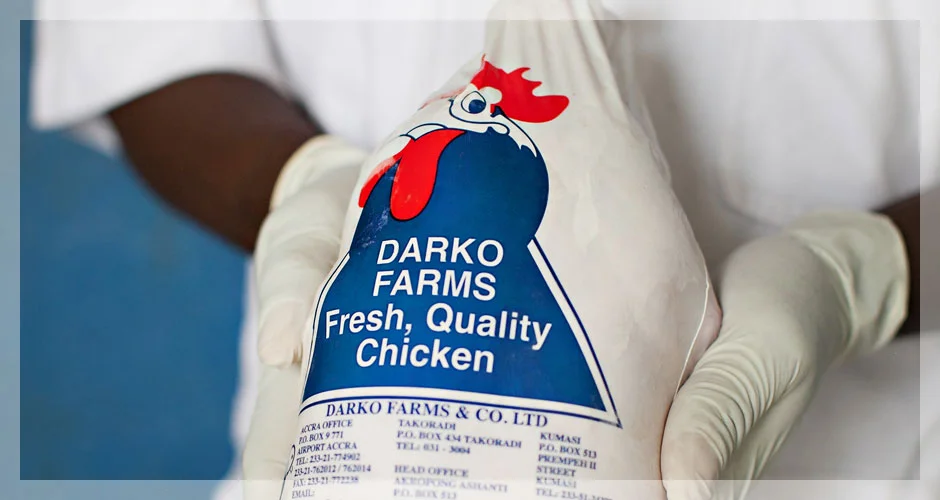Once a pillar of Ghana’s poultry sector, Darko Farms is now in a hard-fought battle for survival. After years of steady decline driven by cheap chicken imports and internal challenges, the company is struggling to reclaim its position in the industry it once dominated.
Founded in 1966 with just 900 birds, Darko Farms grew into a poultry powerhouse by the 1980s, supplying nearly half of Ghana’s day-old chicks. Its success came from a fully integrated model—producing its own feed, running hatcheries, raising broilers, and operating meat processing plants. This vertical integration made Darko Farms a household name and a symbol of local agribusiness success.
But by 2018, the tides had turned. A surge in frozen chicken imports—mainly from the EU, Brazil, and the U.S.—undercut local producers. Imported chicken, often up to 40% cheaper than domestically raised poultry, flooded the market, with volumes exceeding 180,000 metric tonnes annually. For Darko Farms, already facing outdated infrastructure and periodic disease outbreaks, the pressure was overwhelming. By 2019, over 1,000 jobs had been lost, and the company was nearing collapse.
To stem the crisis, the Ghanaian government stepped in with a GH¢22 million bailout in 2019. The funding helped Darko Farms upgrade machinery, triple its processing capacity, and launch an out-grower program that now partners with more than 200 independent poultry farmers. These moves brought some stability, and today, the company directly employs around 250 people, with another 500 supported through its supply chain.
Still, profitability remains out of reach. Feed costs—driven up by reliance on imported maize and soybean meal—continue to eat into margins. With production costs high, Darko Farms struggles to price its products competitively against imported alternatives. As a result, many consumers still opt for the cheaper frozen imports, despite improvements in local poultry quality.
Management at Darko Farms admits the road to recovery is far from over. Even with modern equipment and international-standard facilities, price competitiveness remains the company’s biggest hurdle.
There may be some relief on the horizon. The government is currently considering a 100% tariff on imported poultry—a move that could tip the scales in favor of local producers. A similar approach has worked in Nigeria, where stringent import restrictions boosted domestic poultry production and shielded local farmers from unfair competition.
In contrast, Ghana’s market has remained open, often to the detriment of local producers like Darko Farms.
The company’s struggle is emblematic of a larger issue: Ghana’s dependency on food imports. Whether the country can transition toward agricultural self-reliance will have lasting implications for food security, employment, and rural livelihoods.
Darko Farms’ fight is not just about reviving a business—it’s about redefining the future of Ghana’s poultry industry.



